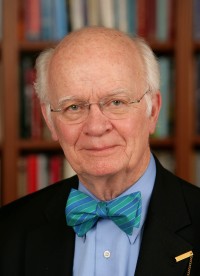Terrible angels
American spirituality being what it is these postmodern days, anything can be turned into an icon, an idol, a god or an angel. I constantly scan the horizon for the impending arrival of the next deity, but it is hard to keep up.
Until this week I had not been aware of Boopolatry, the latest craze sweeping the spirituality set. I learned of it from two witnesses. The first was a newspaper advertisement for Boop stamps that have been issued by the Republic of Guinea. Collectors, we are told, are scrambling to get the Betty Boop stamps, which may become "more desirable than the U.S. Bugs Bunny stamp, the most popular stamp of all time."
The advertisers provide six "little known facts about Betty Boop," a fine service for the course we might call Postmodern Spirituality 101. Max Fleischer, Betty's creator, was born in Vienna in 1889 and died in California in 1972. Popeye danced the hula with her in a Betty Boop short. An annual Betty Boop festival features look-alike and tattoo contests. Hers was one of the first cartoons with sound. Her signature voice, that of Mae Questal, was also the voice of Olive Oyl and Little Audrey, who are not yet on postage stamps, in shrines or on Christmas trees. Betty Boop memorabilia are known as Boopabilia.
Some Boopabilia has taken on angelic iconic status. Betty Henly's The Lighter Side Co. catalog features a silvery, slithery, sexily gowned, haloed, unmistakable Betty Boop on the cover. And, yes, she is waiting to be hung on the tree to celebrate the incarnation of the Lord, an event surrounded by angels unnamed by St. Luke.
These Boop angels are made of glass blown by using "Old World techniques," and they will "surely be passed on for years to come," the catalog says. You can also buy a Boop angel stocking for St. Nicholas to fill.
I can never reflect on angels without thinking of my favorite passage in Rilke's Duino Elegies: "Ein jeder Engel ist schrecklich." "Every angel is terrible." Terrible in Rilke's sense: "for beauty is nothing but the beginning of terror."
Rilke's angel had, he admitted, a Muslim tinge. And biblical angels, like Qur'anic ones, do induce terror. Think of shepherds hiding their faces behind their sleeves near Bethlehem, or women running in fear from an empty tomb; barren or virginal women learning the terrible beauty and beautiful terror that they are to become mothers; angels singing for joy at the creation, or descending in a vision to Jacob. "Every angel is terrible," schrecklich.
My Swiss-German grandparents would pronounce my less-than-angelic behavior in childhood as "schrecklich." My dictionary reminds me that the word means "frightful, terrible; dreadful, horrible; hideous; tremendous; excessive."
Rudolf Otto, in The Idea of the Holy, spoke of the mysterium tremendum, the tremendous and terrifying response to the Holy. Angels used to belong to that sphere. Then the spirituality-fad people domesticated them, reducing them either to cute cherubs, Renaissance style, or safe guardians, personalized for your need of the moment. Now we've reached bottom with what you can put on the top of your Christmas tree. Of the seven synonyms my dictionary gave for schrecklich, I'll take the fifth when it comes to Boopicons. Or skip the whole business and vote for Bugs Bunny.





